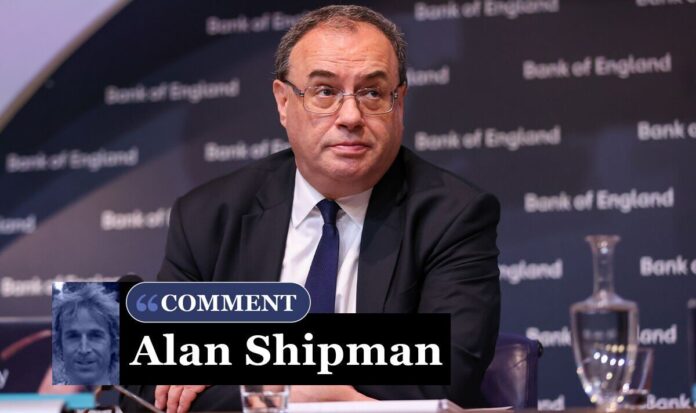UK inflation slows to 17-month low of 6.8% Our economy is broken in many places and it’s not behaving the way it should but it’s not beyond repair. We need more investment, in traditional industries as well as new tech – and a British ‘Bidenomics’ could be the answer. Not for the first time, it’s the US recovery that should give us hope. Joe Biden’s policies have kick-started growth while reducing inflation, by creating incentives for investment that can produce more without using more scarce resources. And by promoting local substitutes for technology and raw materials that have been coming from abroad, they’re boosting national security, giving his plans cross-party appeal. Biden hasn’t shied away from making big corporations and high earners pay more of the bill either, a strategy that can start to bring down record levels of inequality. Britain doesn’t have America’s advantages of printing the world’s currency, controlling a large internal market, and being a magnet for top talent fleeing autocratic governments all over the world. Bank of England governor Andrew Bailey World-class education and science But we’re further down the road to renewable energy and other sustainable technologies, helped by world-class education and science. And we’re not threatened with the return of a leader like Trump. It’s no wonder Chancellor Jeremy Hunt and Bank of England governor Andrew Bailey look a bit puzzled these days, because the normal fixes are just not available. After the bounce-back from the pandemic, the Treasury would normally be looking to cut taxes and let the budget deficit rise a bit to get people spending more. But those options aren’t available because of high inflation – still officially 6.8 in July, far above the 2 percent target. Why the usual answers aren’t working The usual answer would be for the Bank of England to cut interest rates, making it cheaper for business to invest. Instead, they’ve had to raise rates sharply, from 0.1 percent in late 2021 to 5.25 percent after the latest change a week ago. And the Government is having to hold budget spending down, to avoid borrowing more when its debt is already big and getting more expensive. Inflation is high because we’re running at full capacity. Rising output in the past two years has reduced unemployment to 4 percent, and left over a million unfilled vacancies. Those labour shortages would usually mean we all get a pay rise, but average wages haven’t risen since October 2020 after adjusting for inflation. In terms of what they buy, pay packets are actually lower than before the pandemic in manufacturing and most parts of the public sector. UK Chancellor Of The Exchequer Jeremy Hunt to bring down inflation SUBSCRIBE Invalid email We use your sign-up to provide content in ways you’ve consented to and to improve our understanding of you. This may include adverts from us and 3rd parties based on our understanding. You can unsubscribe at any time. More info No more money for increased wages Economists say that’s because our productivity, the value of what we produce, has stopped rising, so there’s no more money to hand out. But they’ve no clear idea why productivity has been slow-growing, holding down wage growth since the global financial crisis of 2008. The Government has kept on investing, even in the austerity years after 2008, but it’s been putting steadily less of the nation’s income into projects that raise our growth potential. Even if the biggest public projects like HS2 stay on track, extra public spending never seems enough. That’s because as our national income rises, we want a rising proportion of it to be spent on the services we expect the state to provide – healthcare, childcare, the elderly, education, transport, policing. But we don’t like paying a rising share of it as tax. UK profits have not fuelled private investment UK companies have done better in protecting their profits against inflation than most of their workers in defending wages, and it’s firms’ success in maintaining profit margins that’s made inflation so stubborn. But those profits haven’t fed through into new private investment, which is the main thing we need to get more output (and income) when there aren’t more people available for work. Many other parts of the economy have also stopped playing by the normal rules. The recent drop in house prices is normally good news for renters and first-time buyers, yet rents in most cities continue to rise, while the jump in interest rates makes mortgages harder to find.


